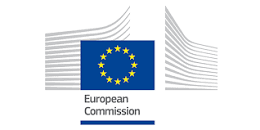Governing Activation in Ireland
Governing Activation in Ireland is a two-year Marie Sklodowska-Curie Action, led by Dr Michael McGann in collaboration with Dr Mary Murphy from Maynooth University Social Sciences Institute. The project aims to provide a comparative study of Ireland’s mixed economy of activation, in the context of the recent ‘activation turn’ in Irish social policy and series of operational reforms of Ireland’s Public Employment Services that have subsequently followed.
Until recently, the ‘activation turn’ that had taken root internationally in social policy since the late 1990s did not significantly inform social policy in Ireland. Prior to the financial crisis, and in contrast to most of its OECD counterparts, Ireland’s social welfare system incorporated little monitoring or enforcement of work-related conditionality while the country’s labour market programmes were highly fragmented. However, the crisis and surge in the number of people on unemployment payments provided a policy window to implement a programme of ‘rapid modernisation.’ Social security retrenchment and reform began with the introduction of rate cuts to all working age payments in the 2010 and 2011 budgets, with younger jobseekers bearing the brunt of these cuts. This was followed by the introduction of new ‘penalty rates’ for those on Jobseeker’s Allowance or Jobseeker’s Benefit. For the first time, unemployed jobseekers could now be sanctioned if they refused or failed to attend meetings requested by the Department of Employment Affairs and Social Protection, or did not participate in suitable employment support, training or work-experience programmes.
The agencies administering benefits and delivering employment services to jobseekers have also been substantially reconfigured since the crisis. Ireland’s national employment service (FAS) was merged with Social Welfare offices to create Intreo, a new national employment and entitlements service. However, the provision of employment services to the long-term unemployed (those on payments for 12 months or more) was transferred to the existing network of community-run Local Employment Services (LES) and to two companies contracted to deliver a newly created Payment-by-Results programme, Job Path, which commenced in 2015.
Ireland’s PES system has thus quickly evolved into a highly mixed economy of activation. But beyond a handful of government-commissioned evaluations, we know relatively little about how employment services are delivered on the ground: what kind of support is offered, by whom, and whether (and in what ways) the services provided by Intreo, Job Path, and LES substantially differ in practice.
This is a key evidence gap in the context of Ireland’s economic recovery and the need for employment services to adapt to a situation of lower unemployment and a cohort of jobseekers dealing with greater employment challenges. Moreover, in the context of climate change, PES will also have an important role to play in promoting labour force transitions to more sustainable employment. This raises important questions about the type and quality of jobs unemployed people are being supported into by public, private and community-sector providers.
Drawing on an approach that has been applied to study welfare reform and the frontline delivery of activation in Australia, the UK and the Netherlands, the project will:
• Map key points of similarity and difference between Ireland’s contracted-out and publicly-delivered employment services
• Consider how differences in contracting approaches lead to variations in the kinds of support delivered by providers on the ground
• Provide an analysis of jobseekers’ and other participants’ lived-experiences of activation, and the role of public, private, and community delivered services in promoting their labour market reintegration
• Assess the extent to which the Irish experience of PES contracting is convergent with or divergent from experiences of marketization in other welfare states, including Australia and the UK
These questions will be addressed through employing a Street-Level Bureaucracy perspective, which positions frontline employment services staff as agents who ‘effectively create policy through their practices’ and, in so doing, draws attention to the gap between formal policy as written and policy as produced at the ‘micro-level’ of ‘everyday organizational life’ (Rice 2012; Brodkin 2011). This approach lends itself to studying the market governance of activation by bringing into focus how performance frameworks shape every-day service-delivery in complex ways, including in ways that may negatively impact policy goals. This will be the first study of Ireland's PES using such a Street-Level Bureaucracy perspective.
Principal Investigator: Dr Michael McGann (Michael.McGann@mu.ie)
Partner Investigator and mentor: Dr Mary Murphy (Mary.P.Murphy@mu.ie) Project website: www.activationinireland.wordpress.com
Acknowledgements


